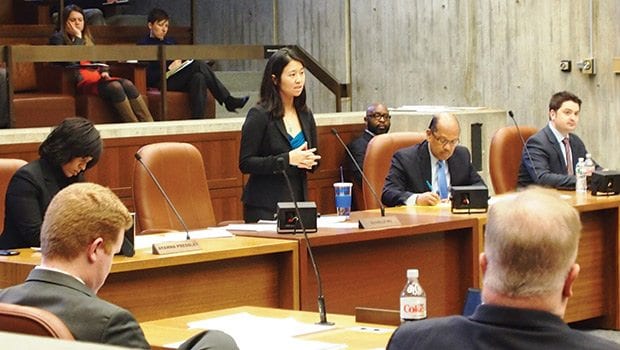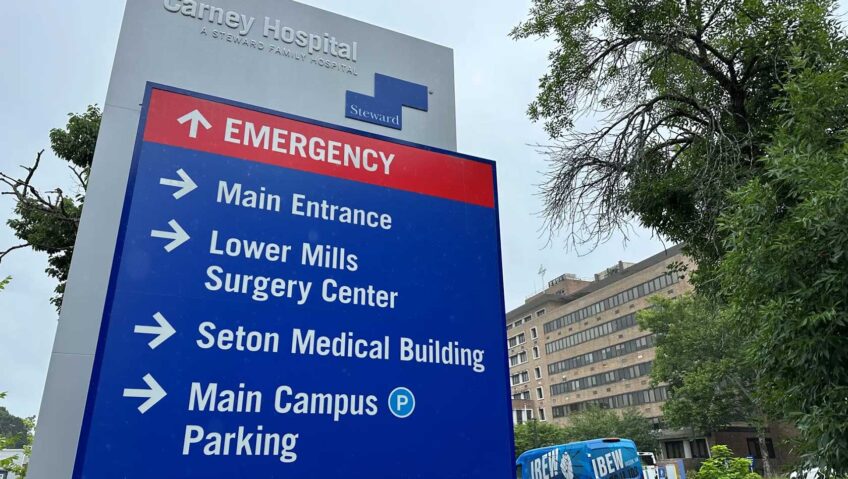
A pair of city councilors incited controversy last week, advancing a measure that would allow patrons to bring their own liquor to restaurants in Boston.
The proposed legislation, which councilors are referring to as BYOB (bring your own bottle) comes on the heels of at-large Councilor Ayanna Pressley’s push to lift the liquor license cap, a move she says is aimed at sparking economic development in the city’s long-neglected neighborhood business districts. Many of those districts, including Dudley Square and Uphams corner, lack full-service, sit-down restaurants.
Liquor licenses, which have long been limited by state law, help ensure that restaurants can turn a profit, but cost between $350,000 and $500,000, placing them out of reach for many entrepreneurs.
At-large Councilor Stephen Murphy said the measure he is co-sponsoring with at-large Councilor Michelle Wu would help small neighborhood restaurants compete with larger restaurants that already have liquor licenses.
“This is another effort by Councilor Wu to strengthen all neighborhoods,” he said.
Pressley suggested that the measure would undercut efforts to bring more restaurants to neighborhoods.
“Given the important role restaurants serve as economic engines, I’m focused on moving things forward,” she said. “I’m worried about creating a tiered system. I don’t want neighborhoods like Mattapan and Hyde Park to be neglected.”
Serving liquor typically adds 40 percent to a restaurant bill, Pressley says, a critical bump in revenue that helps restaurants remain competitive.
“It would hurt their bottom line,” she said. “It would hurt tipped workers. I think it’s an important conversation to be had. I’m not saying I’m opposed to it. But I’m not ready to support it.”
Pressley’s push to increase the number of liquor licenses in Boston was not universally accepted. Some neighborhood activists worried that increased liquor licenses would lead to more public drinking.
In the end, Pressley succeeded in gaining passage of a home-rule petition that created 75 new liquor licenses the city will sell to restaurants over three years, with 60 designated for neighborhood business districts. The licenses will be sold for $2,000, will be non-transferable and will revert to the city if a restaurant is sold. Pressley says the new liquor licenses will be distributed in a manner that gives the city and neighborhood groups a degree of oversight over liquor consumption in restaurants. The new measure being advanced by Wu and Murphy would not.
Malia Lazu, executive director of the Future Boston Alliance, worked with Pressley to lift the state cap on liquor licenses. She said the BYOB measure could be counterproductive to efforts aimed at increasing development in neighborhood business districts.
“It might be good for Downtown or Back Bay, but liquor sales are an important part of a restaurant’s business model,” she said. “It would be a real shame of a BYOB bill undercut the home rule petition Ayanna Pressley passed.”







